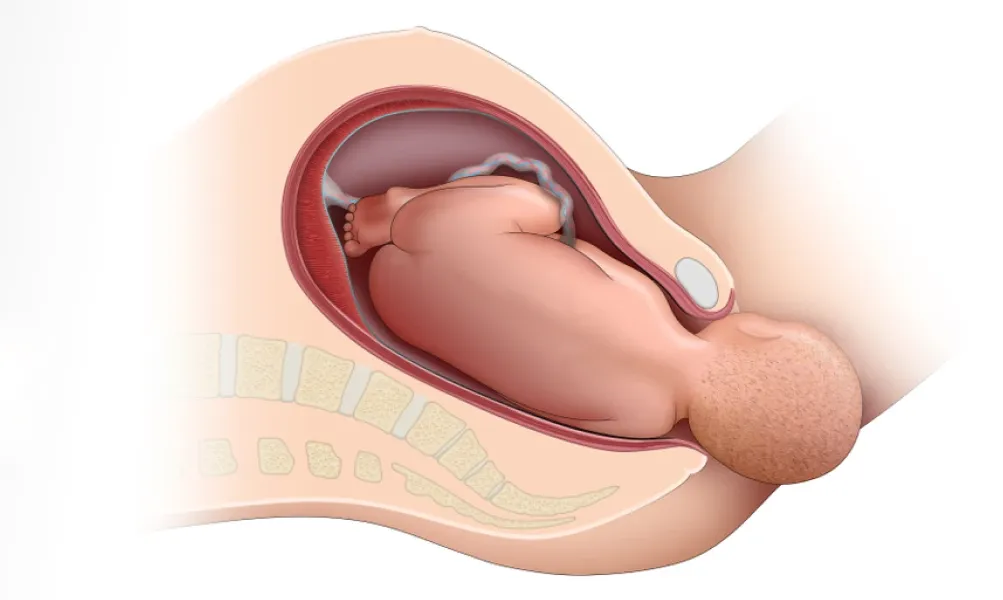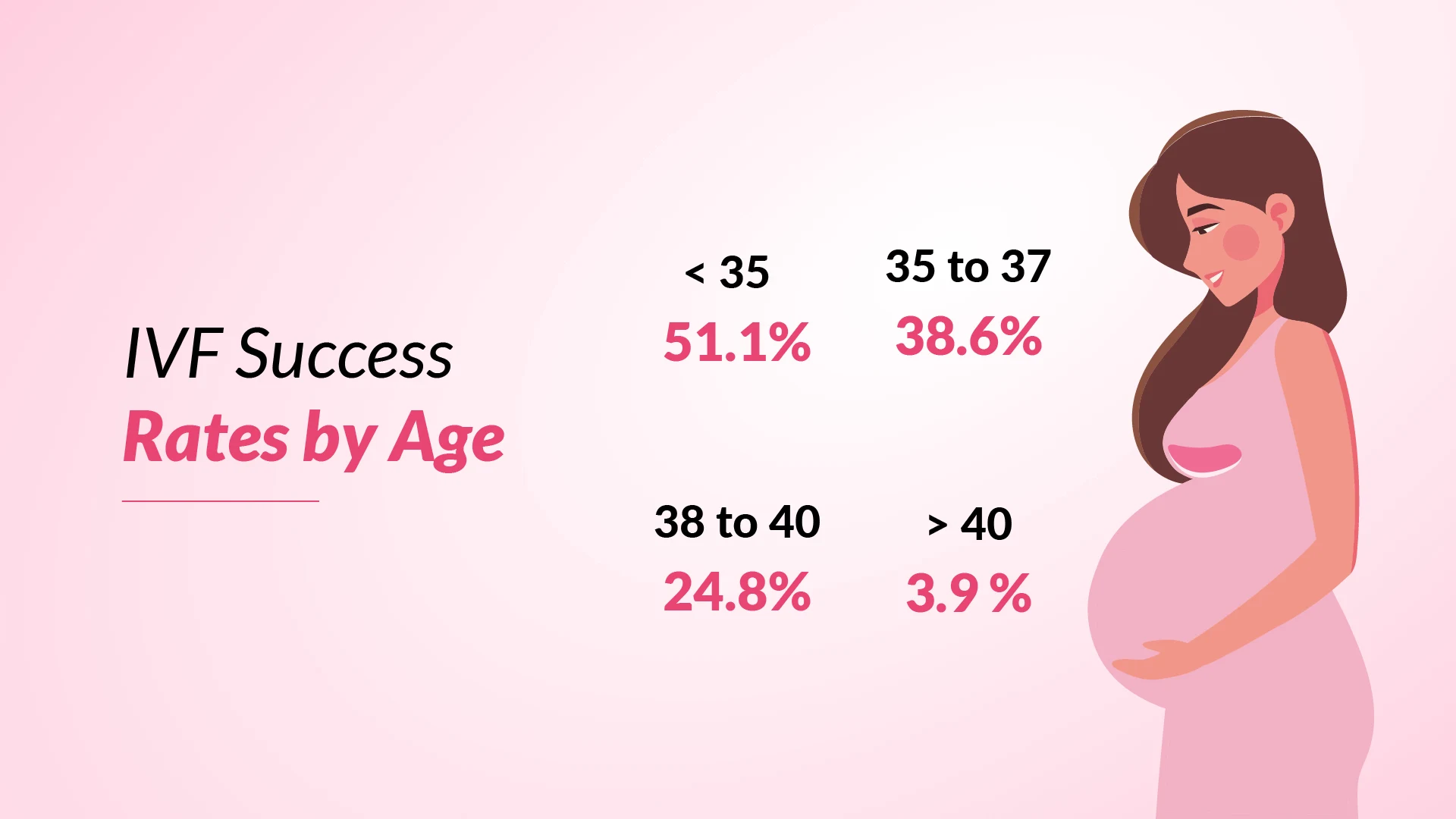Some patients say that their fertility experiences differ significantly based on the doctor and hospital. Due to this, it’s recommended to talk to your doctor, who is an IVF specialist, and address any issues you have in mind before beginning the IVF process. So, you’ll learn about the various options and discover which will work best for your needs.
So, what should you be asking? This blog can help answer these questions.
1. What is More Suitable for Me, If I Suffer From Infertility With No Explanation, IVF Or IUI?
Infertility may be triggered due to a variety of causes, which include:
- Infertility related to ovulation
- PCOS is a form of polycystic ovary syndrome. (PCOS)
- Primary Ovarian Insufficiency (POI)
- Thyroid illness
- Eggs are of high quality and quantity
- Age
In order to determine the most effective method to use, the initial step is to recognise the differences between these two.
Intrauterine Insemination (IUI) is the process in which sperm are placed within the uterus to ensure that the sperm is healthy and gets close to the eggs, and improves the chances of successful fertilisation. IUI needs functioning fallopian tubes as well as working sperm.
In the event of multiple failed IUI cycles, based on the advice of each doctor and your specific situation, usually after 3 to 5 unsuccessful IUI cycles, if you’ve had 3-5 failed IUI cycles, your IVF doctor will recommend another method: IVF (In vitro fertilisation).
When you undergo IVF treatment, women utilise fertility medication that stimulates the ovaries. Many follicles are created when they are mature. The eggs are taken and fertilised in our laboratory. The fertilised embryo(s) will then be placed in the uterus.
Choosing the best IVF doctor in Ahmedabad will take this choice together as to which option, IUI as well as IVF, is right for you.
2. Do You Have A Minimum Age To Receive Treatments?
A lot of IVF hospitals in Ahmedabad have their age limits, and generally have different explanations to justify doing this. We at Lifeline Women’s Hospital & IVF Centre don’t establish a minimum age that patients must meet for IVF treatment; however, it is vital that you speak with our specialist before you discuss your particular situation and treatment plans.
In the IVF world, the success rates fall with age, and the chance of complications during pregnancy grows. Every patient is examined individually and takes into account various variables to evaluate the chances of success. Our skilled IVF doctor and experienced staff are there to assist you at each stage of your journey to increase your chances of achieving successful treatment.
3. What Tests Must Be Performed Before Beginning IVF Treatment?
It’s important to be aware of which tests the doctor requires, and also what kind of drugs are ordered throughout the procedure. In Lifeline Women’s Hospital & IVF Centre, the doctors typically conduct blood tests to examine women’s ovarian reserve and to look for any anomalies.
Patients of males will undergo blood tests and semen tests are typically required before beginning treatment with IVF treatment. The tests for pre-cycle can be performed at the best IVF hospital in Ahmedabad for a reduced travel time in case you are not within or around the Los Angeles area.
4. What Is The Length Of Time That The IVF Process is Likely To Take From Beginning To End?
The time frame for the egg retrieval stimulation process can last between 10-14 days; however, each situation is unique according to how the body of the patient reacts to medications. The period begins once the patient starts taking medication to stimulate ovarian function. egg retrieval process.
Once embryos have been fertilised and biopsied, it will take approximately two weeks for the results of genetic tests. When we can know the embryo’s outcomes, you’ll be able to plan the transfer of embryos. In the case of the FET (Frozen embryo transfer) cycle, every case may differ based on a number of aspects. A typical situation is that the process of transferring embryos is typically carried out between days 19-21 of the menstrual cycle. It is then preceded by a pregnancy blood test about 10 days after the implantation. At the best IVF Centre in Ahmedabad, the doctor will keep following closely with your pregnancy closely through the time of the 10-week OB ultrasound. Most often, after the 10-week OB ultrasound, you’ll get discharged from her medical treatment. Dr. Maulik Shah is one of the best gynaecologist in Ahmedabad.
5. Does Your Institution Offer Frozen Or Fresh Embryo Transfers?
Transfers of frozen embryos have more success than new embryo transfers.
The majority of patients are advised to take the plunge and undergo a frozen embryo transfer. When you transfer your frozen embryo, there are already embryos stored and ready for use as required. This means that there is no need to repeat the egg retrieval process if your initial attempt is unsuccessful.
If you opt to freeze embryos, PGT (Preimplantation genetic test) is also a possibility on embryos to look for any chromosomal anomalies, which will allow you to identify which embryos are normal in chromosomes. This is to eliminate any chromosome-related diseases and improve the chances of having a healthy infant. Also, you will have the possibility of deciding on the gender you want if you decide to undergo the PGT-A test.
6. Would You Prefer An Embryo Transfer With Only One Embryo Or Multiple Embryo Transfer?
In earlier times, IVF experts used to depend on multiple embryo transfers to increase the chances of success. It was believed that when you insert more than one embryo, the most robust or superior one will be the most likely to do well.
Nowadays, the method is different. Thanks to the advancements in technology and the pre-implantation genetic test (PGT-A) that is involved, the Single Embryo Transfer process is strongly recommended by our doctor to minimize the chance of high-risk pregnancy, twins, or miscarriages.
Our IVF doctor prefers to choose and transfer a high-quality embryo to have a better rate of success.
7. Do I need a PGD?
PGD testing is also known as PGT-M testing. PGS testing is likewise known as PGT-A testing at present. PGT-A checks the 23 chromosome pairs for any structural/numerical anomalies.
PGT-M tests are conducted in cases of a particular issue or requirement about a specific variant. PGT-M tests are typically used when there’s an uncommon disease that’s not frequently detected and generally require the use of a probe or a customised panel which utilises sperm/egg sources, and also the embryo. Sometimes, additional individuals belonging to the family, biological sperm, and egg sources might be required.
In both cases, it’s crucial to remember that both tests take place after the creation of embryos; however, they are performed before implantation. The pre-cycle lab process is to conduct a genetic screening. This test will determine if a couple requires an additional PGD (PGT-M tests) over and above the PGT-A test.
8. How Much Does Treatment Cost?
The infertility treatment can be costly. We at Lifeline Women’s Hospital & IVF Centre, provide you with top-quality care and clear costs all along your journey. Prices comprise:
- Laboratory work in preparation for the cycle
- Treatments for fertility
- IVF cost of the cycle is based on the type of cycle
- Outside lab charges
- As well as shipping and handling costs
9. What Alternatives are There In The Case Of Embryos Not Employed?
The hospital won’t throw away embryos that are not used without your approval. It is possible to keep them in a safe place for use later or donate them to patients looking for donor embryos or to research. Once you begin treatment, we’ll give the embryo a dissolution acceptance form with every option available to you, and then you can make your own decisions.
10. Do You Have Any Adverse Consequences Associated With Treatments?
For the IVF treatment, a variety of medicines and specific medical procedures are necessary, which could result in negative side effects. For instance, injections may cause pain. Fertility medications can trigger an increase in mood and abdominal discomfort, and bloating that is mild in the course of treatment. There is a tiny percentage of instances in, ovarian hyperstimulation syndrome (OHSS) may occur.
Typically, symptoms disappear after 5-10 days. However, in the most severe instances, specific methods may be used to treat the OHSS. If you notice any signs or discomfort, the medical team is available 24/7 to be reached and offer solutions. Schedule a consultation with the best IVF Doctor in Ahmedabad to know more. For preparing for your first appointment and learning details about the IVF procedure, please contact us now! Lifeline Women’s Hospital is one of the best normal delivery hospital in Gota.




